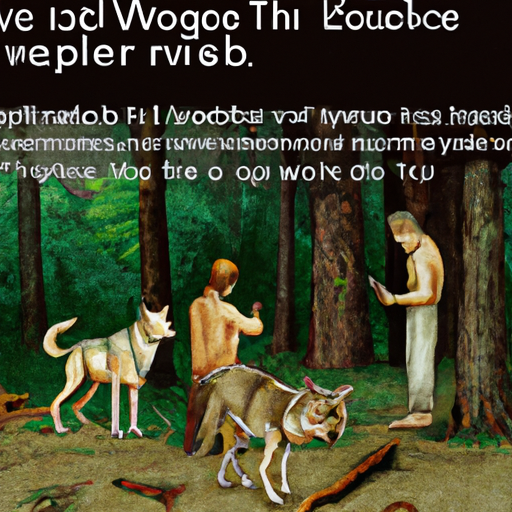Introduction
You may be a proud dog owner, or someone who simply admires these four-legged friends from afar. Either way, you’ve likely marveled at the deep bond that exists between humans and dogs. Have you ever found yourself wondering: just how long ago did this remarkable relationship begin? Let’s set off on a journey through time, tracing the origins of our domesticated canine companions.
The Evidence of Early Domestication
As a caregiver, you understand the power of connection and the importance of relationships. Dogs, with their unwavering loyalty and companionship, have long held a special place in human society. But how long is ‘long’?
Archaeological evidence provides the most tangible answers. The remains of a dog buried with a human were discovered in Germany, dating back to 14,000 years ago. This suggests a deep, emotional bond even at that early stage of human history.
However, genetic studies suggest that dog domestication may have begun much earlier. Both dogs and wolves share a common ancestor, from which they diverged. The timing of this divergence is estimated to be approximately 20,000 to 40,000 years ago.
Factors Leading to Domestication
You may be wondering: how did this domestication process occur? What led our ancestors to form relationships with these wild creatures?
There are numerous theories, each highlighting different factors:
- The Hunting Partnership: Some scholars suggest that early humans and wolves formed a hunting alliance. Wolves, with their sharp senses and hunting skills, helped humans catch prey. In return, humans shared the spoils, providing wolves with a reliable food source.
- The Scavenger Theory: Others propose that wolves were initially attracted to human settlements due to the availability of food scraps. Over time, these wolves became less fearful of humans and more dependent on them for food.
- The Adoption Theory: A more heartwarming theory suggests that humans adopted wolf pups and raised them, leading to their gradual domestication.
The Evolution of Dogs Through Time
Over time, dogs have evolved in ways that have made them increasingly suited to living with humans. These changes are not just physical, but behavioral as well.
- Physical Changes: Dogs have developed a wide variety of shapes, sizes, and coat types. These differences are far greater than those found in their wild counterparts, reflecting human preferences and selective breeding.
- Behavioral Changes: Dogs have also developed behaviors that make them good companions. They are generally more sociable, trainable, and less aggressive than wild wolves.
The Impact of Dogs on Human Society
Dogs have made significant contributions to human society throughout history.
| Role | Description |
|---|---|
| Hunting Partners | Assisted humans in locating and capturing prey |
| Herding Dogs | Protected livestock from predators and helped shepherd them |
| Guard Dogs | Protected human settlements from intruders |
| Companion Animals | Provided emotional support and companionship |
FAQ
Q: When were dogs first domesticated?
A: Based on archaeological and genetic evidence, dogs were likely first domesticated between 20,000 to 40,000 years ago.
Q: How did the domestication process occur?
A: There are various theories, including a hunting partnership, scavenger theory, and the adoption of wolf cubs.
Q: How have dogs evolved since domestication?
A: Dogs have undergone both physical and behavioral changes, making them more adaptable to human society.
Q: What roles have dogs played in human society?
A: Dogs have served as hunting partners, herding dogs, guard dogs, and companions throughout history.
In conclusion, our relationship with dogs is not a recent phenomenon. It is a bond forged over thousands of years, a testament to the enduring connections that can form between species. As a caregiver, you understand this bond better than anyone. So, the next time you glance at your four-legged friend, remember: you’re part of a tradition that stretches back to the very dawn of human history.



